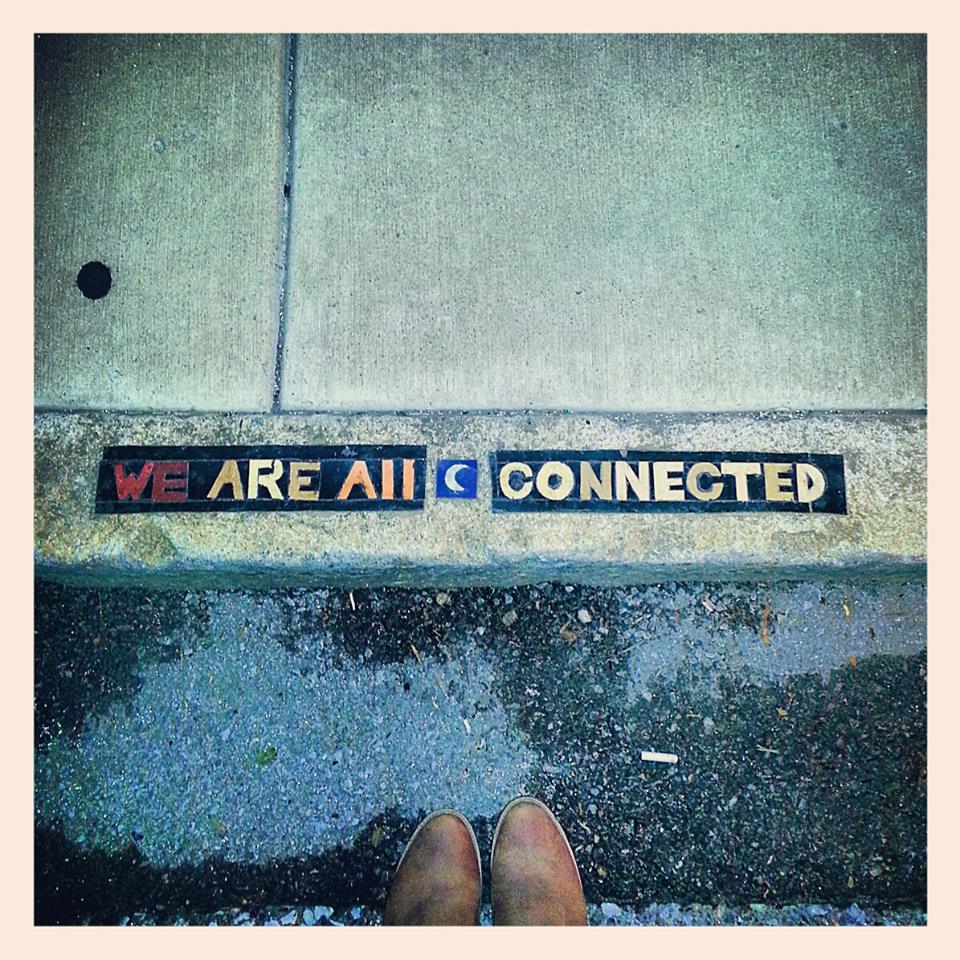Compassion and empathy make us human. The world needs more of both on a daily basis. When we are overwhelmed by the evil in the world, small acts of solidarity with fellow humans may be ineffective, but they are a statement of a shared desire for peace.
I reminded myself of this when my Facebook feed turned the colors of the French flag this weekend. I tried not to be cynical. Why just the French flag? More people were killed in a single terrorist act in Kenya, and more yet in a now-regular string of attacks in Beirut? Where are the Facebook profile photo overlays in black, red, and green? Where were the Cedars of Lebanon and Maasai shields among the Eiffel towers? Where are the hashtags and open doors for the flood of refugees fleeing the same, daily violence?
One reputable news outlet claimed that the world wasn’t pouring out their hearts in grief for these other tragedies because violence in these areas “was expected”.
Seriously. Let that sink in.
Violence here is expected. The world doesn’t blink.
It toes the line of victim-blaming, doesn’t it? As if we are somehow collectively excused from outrage or empathy because that kind of thing happens every day there. C’est la vie, right?
Social media has made armchair pundits of us all. Even me, sitting here writing this; I acknowledge this. We add overlays to our profile pictures. We like and share articles because these passive actions make us feel as though we are making a tangible difference. Perhaps we are. But it is far more likely that we are not changing anyone’s hearts or minds. All of our empathy and gestures of solidarity ring hollow if they are not supported by action.
I’d be willing to hazard another reason for the imbalanced outcry is the victims in Paris look like us. Compassion is much easier to muster when you can immediately identify with the victims. Perhaps some of you reading this have been to Paris, for vacations, or a study abroad. Maybe you took French in school. Je t’aime, Paris.
Far fewer of us have likely spent time in Kenya, Lebanon, or Syria. These places are foreign experiences. The people feel strange to our Continental tastes. They don’t look like us. Mustering this compassion is not as instinctual for many of us. Human nature is selfish. We don’t like challenges. We crave comfort. Our biological instincts are to protect our own. Our instincts are to rally around Paris because it is familiar.
But this familiarity does not excuse us from compassion for the rest of the world. We may not be able to equitably distribute our empathy. Attempting to feel everything for every tragedy wrings us dry to the point that our hearts are fatigued and our compassion disappears. But we cannot allow ourselves to ignore other tragedy simply because it makes us uncomfortable. We must foster more love within ourselves in the face of hate.
Love is a verb. It is a radical, revolutionary act. Love is compassion so earth-shattering that it challenges our comfort zones.
Does this mean you should uproot your family and move to Syria? Not necessarily. (Unless you want to.)
The verb of love means that each of us is called to heal the rifts that hate and fear create between us — to act as one of many rather than a kingdom of one. Whether we fall back on religious texts to find this responsibility or take the pragmatic approach that the social contract demands it, radical love is implicit everywhere and across our experience.
Perhaps your own version of a love revolution means occasionally shedding your ego and practicing an act of kindness when you’d much rather spit poison. Very few people are hateful by default. They are hateful out of ignorance, fear, and entitlement. Sometimes, a strange combination of all three. If we cannot feel compassion and love for the “worst” of us, we can’t feel authentic love for the “best” of us.
Hate should never be written off as “expected”. The violence caused by hate should not get a pass because we can’t relate to those who have been hurt, or even those who caused it. The roots of hate fester and grow in the absence of love. Injustices at home and abroad should fill us with a moral outrage and a human impulse to foster more love, even when it hurts. Love should be ripples emanating from every person, ripples that change our communal experience for the better.
Radical love is striving to identify and connect with our commonalities as human beings rather than our differences. We are one. We are glorious. We are frail. We are infinite. We are fragile. Love is a verb. It is a challenge. It is a call to action.
If you’re reading this, I love you. I may not know you, but I love you. If I knew you, I may not like you. But I still love you. I love you because you are me. I love you because you are NOT me. I love you because you deserve to be loved and treated with the respect and compassion your humanity commands.
Je t’aime.
بحبك
Ninakupenda.
Ana bḣibbak.
I love you.

